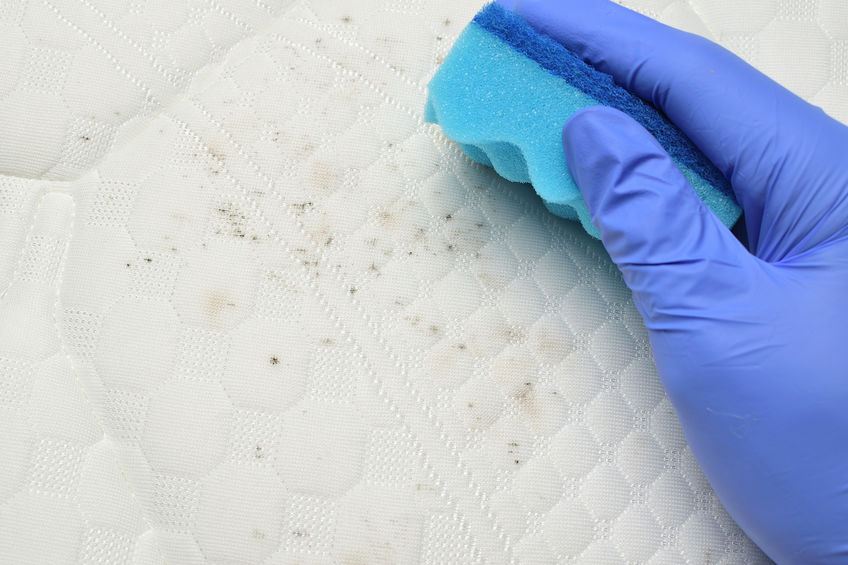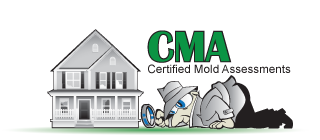- Dispose of Mold-Infested Items
Cellulose-based or porous materials such as drywall, mattresses, clothing, and carpet can be difficult to salvage once they are deeply infested with mold.

- Cut Off Any Sources of Moisture
- Clean Visible Mold As Soon As You See It
- Ventilate the Area
- Use Dehumidifiers
- Seek Professional Help
Unlike a bathroom or basement where you may experience water leakages from a damaged or broken pipe, there are other sources of moisture that can lead to mold growth in your bedroom. A cold-bridging issue may occur in areas of a house that is less insulated than the adjacent areas. This problem may occur around windows, doors, ceiling, and on the floor. Check your window area and ensure there is no blockage in your gutters and drainage. It is easier to get rid of mold when you have cut off all sources of moisture that could create a perfect recipe for its existence.
Mold grows quickly in a humid environment so it is important to get rid of it as soon as you notice it. It is also important to do a thorough inspection to ensure mold is not growing anywhere in your bedroom. Check all corners including your wardrobes, under your bed, the shoe rack, and crawlspaces. If you are only dealing with mold that covers a small area, consider wearing protective clothing and use a recommended cleaning detergent for different surfaces. If you are not certain about the extent of mold growth in your bedroom then consider seeking expert help.
A poorly ventilated room can trap in airborne mold spores that can cause significant problems once they find a source of moisture. If your bedroom has an en suite or is close to a bathroom, ensure it has a good extract to the exterior and is properly ventilated. Check your vents to ensure you do not have any blockages and that your HVAC system is operating efficiently. Good air circulation can help get rid of mold spores from your bedroom by exchanging fresh outdoor air with stale indoor air.
Dehumidifiers can help control the level of humidity in your bedroom whenever they go beyond the normal. Although it is a good idea to prevent seepages and fix water leakages, it only helps in the short run especially if you live in an area with humid weather conditions. A dehumidifier can combat mold and mildew by regulating the level of humidity in your room. It creates a warm and cozy place to live in by minimizing condensation and damp conditions that cause mold growth.
If you are uncertain of the extent of mold in your bedroom or you cannot locate its source, then it is important to call in the mold professionals. A mold problem that covers a large area or poses a significant danger to your health and that of your family should not be taken lightly. Since you spend most of your time in the bedroom when asleep, you are more likely to inhale large quantities of mold that could affect your respiratory health. Consider hiring a mold remediation company to assess the extent of mold and eliminate it to make your home safer and healthy to live in.
Unlike the bathroom or kitchen where mold is primarily caused by constant humidity from steam, a mold problem in the bedroom occurs because of condensation and humid weather conditions. When checking for mold in your bedroom, focus on the walls, ceiling, and windows first before you check your clothes and beddings. You can always call in mold professionals to confirm your suspicions and deal with the situation accordingly.
